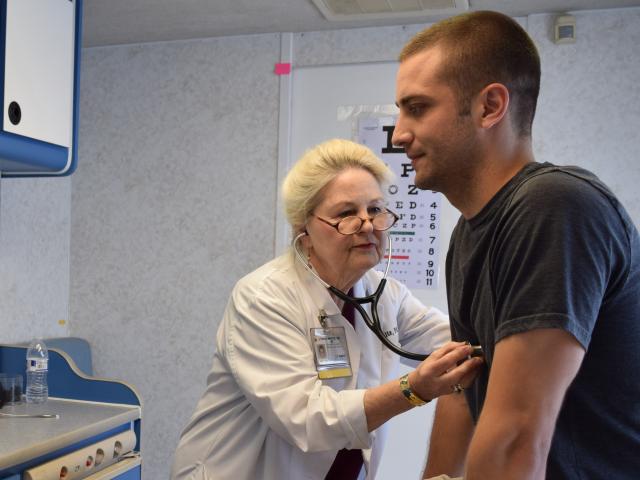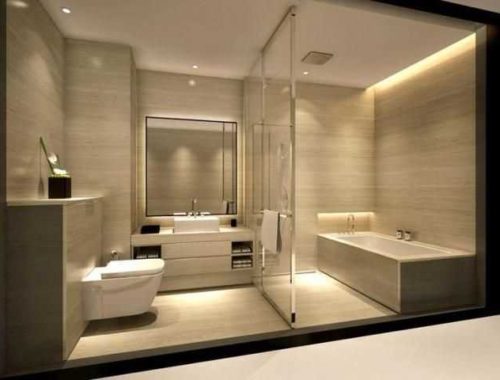
Medical Alerts in Retirement Homes
As we age, the likelihood of developing health problems increases, and the need for timely medical attention becomes more critical. This is especially true for seniors living in retirement homes, where medical emergencies can occur unexpectedly. Fortunately, advancements in technology have led to the development of medical alert systems, which play a vital role in ensuring the safety and well-being of older adults. These systems provide an immediate line of communication to healthcare professionals, helping to prevent serious consequences in the event of a medical emergency. This blog post will explore the importance of medical alerts in retirement homes, how they work, and their impact on seniors’ safety and independence.
What Are Medical Alerts?
Medical alert systems, also known as personal emergency response systems (PERS), are devices designed to allow individuals to quickly call for help in the event of a medical emergency. These systems typically consist of a wearable pendant or bracelet that has a button that can be pressed to alert emergency responders. The device is often connected to a base station, which communicates with emergency services or designated caregivers when the button is pressed.
In retirement homes, medical alert systems are essential for seniors who may experience health issues, such as heart attacks, strokes, falls, or other medical emergencies. These devices allow for immediate assistance, even if the individual is unable to reach a phone or call for help themselves. The convenience and reliability of medical alert systems provide peace of mind to both residents and their families, knowing that help is always just a button press away.
The Importance of Medical Alerts in Retirement Homes
1. Quick Access to Medical Assistance
One of the most significant benefits of medical alert systems in retirement homes is the ability to quickly summon help when a resident faces a health emergency. Time is critical during medical situations like heart attacks, strokes, or falls, and delaying treatment can lead to severe complications or even death. In a retirement home, staff may not always be immediately available or able to reach a resident in need, especially if they are in a remote part of the building or incapacitated.
With medical alert systems, residents can easily alert staff or emergency responders with the push of a button. This rapid response time can make a significant difference in the outcome of the situation, allowing medical professionals to intervene sooner and provide the necessary care.
2. Promoting Independence and Confidence
For many seniors, maintaining independence is a top priority. The idea of relying on others for assistance can be disempowering and may lead to feelings of anxiety or loss of control. Medical alert systems help seniors feel more confident in their ability to live independently while knowing that help is available if needed.
In retirement homes, where some residents may have mobility issues or chronic health conditions, the ability to summon help without having to depend on others provides a sense of security. The use of medical alert systems allows seniors to go about their daily activities with less worry, knowing that assistance is only a button press away. This, in turn, improves their overall quality of life and mental well-being.
3. Reducing the Risk of Falls and Injuries
Falls are one of the most common causes of injury among seniors, particularly in retirement homes. According to the Centers for Disease Control and Prevention (CDC), one in four Americans aged 65 and older falls each year. Falls can lead to serious injuries, such as fractures, head trauma, or even death. In retirement homes, falls are especially concerning because seniors may not always have the physical ability to get up on their own or call for help in the event of a fall.
Medical alert systems can reduce the risk of falls turning into life-threatening emergencies by providing immediate access to help. Many medical alert systems feature fall detection technology, which can automatically detect when a fall occurs and alert staff or emergency responders without the resident needing to press a button. This technology can be particularly valuable for seniors with limited mobility or cognitive impairments, who may be unable to press the button themselves after a fall.
4. Peace of Mind for Families and Caregivers
The role of medical alerts in retirement homes extends beyond the residents themselves. Family members and caregivers also benefit from knowing that their loved ones have access to immediate assistance if needed. For many families, it can be emotionally challenging to place a loved one in a retirement home, as they may worry about their safety and well-being. Medical alert systems provide peace of mind, knowing that their loved one can get help at any time.
In addition, caregivers in retirement homes can also feel reassured that residents are equipped with a reliable means of communication. Medical alert systems allow staff to focus on providing care to multiple residents while ensuring that those who need immediate attention can receive it promptly. This reduces the risk of medical emergencies going unnoticed or untreated.
5. Supporting Personalized Care Plans
Every resident in a retirement home has unique healthcare needs, and a personalized care plan is often developed to address these needs. Medical alert systems can be integrated into these care plans, ensuring that residents receive the appropriate level of support. For example, a resident with a history of heart disease might be given a medical alert device that connects directly to the facility’s healthcare team, ensuring that their condition is closely monitored.
Some medical alert systems also allow caregivers to customize alerts based on specific needs. For instance, if a resident has a chronic condition that requires regular monitoring, such as diabetes or high blood pressure, their medical alert system can be programmed to notify staff if their vital signs fall outside of the safe range. This helps staff respond quickly to changes in the resident’s health and adjust their care accordingly.

The Impact of Medical Alerts on Senior Living Communities
Improved Health Outcomes
By facilitating rapid medical intervention, medical alert systems can contribute to better health outcomes for seniors. Whether it’s providing a quick response to a fall, stroke, or other medical emergency, the timely delivery of care can prevent complications and improve recovery chances. According to research published on MedicalResearch.com, early detection and rapid medical response are critical factors in improving the chances of recovery for seniors facing emergencies. In some cases, the early detection of a medical emergency can even save lives.
Enhanced Resident Satisfaction
Seniors living in retirement homes often report feeling more secure and satisfied when they have access to medical alert systems. Knowing that they can reach out for help at any moment allows residents to feel more at ease, reducing anxiety and promoting emotional well-being. A satisfied resident is more likely to have a positive experience in the retirement home, which can also contribute to overall community morale.
Operational Efficiency
For retirement home staff, medical alert systems streamline operations and improve efficiency. Instead of relying on residents to seek out help or caregivers to constantly check in, medical alert systems provide an immediate notification of potential emergencies. This reduces the burden on staff and ensures that residents’ needs are addressed without delay.
Conclusion
Medical alert systems play a critical role in ensuring the safety, health, and independence of seniors living in retirement homes. By offering quick access to medical assistance, promoting independence, reducing the risk of falls, and providing peace of mind to families, these systems are an essential tool for senior living communities. As technology continues to advance, we can expect even more sophisticated and effective medical alert solutions, further enhancing the quality of life for seniors and helping to create safer, more supportive environments in retirement homes.
You May Also Like

Vital Affiliate Marketing Fundamentals
October 14, 2020
Granite Bathroom Counter Tops – Vanity On Display
March 11, 2020

